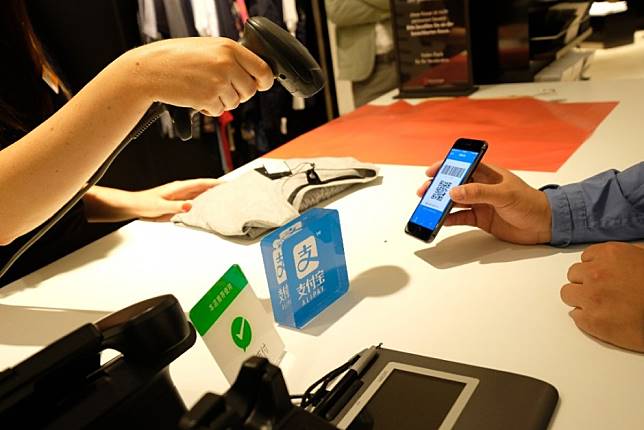2022 Predictions: China To Dominate Super Apps, Data Ownership In Banking To Be More Transparent, And Mobile Wallet Transactions Set To Exceed $266 Billion In The US, Says GlobalData

Categories :
Digital technologies are causing disruption across banking and online payments. In its latest report, ‘Tech, Media, & Telecom (TMT) Predictions 2022’, GlobalData, a leading data and analytics company, finds that super apps, openness in customer data ownership, and Generation Hashtag will be key topics in fintech in 2022.
As 2021 draws to a close, Amrit Dhami, Thematic Analyst at GlobalData, offers her view on these themes:
M-commerce is fueling the development of super apps in the West, but China will continue to rule the roost
“The increased use of mobile wallets — a virtual wallet that stores card details on mobile phones — and mobile commerce (m-commerce) — purchasing online via a mobile phone — is driving the development of ‘super apps’ in the West, similar to China’s WeChat and Alipay. In 2022, the value of mobile wallet transactions will exceed $266 billion in the US and $60.5 trillion in China.
“Mobile wallets act as a gateway to a broader range of financial services without the need for consumers to leave the app. Mobile point of sale (POS) software usually requires biometric authentication and offers more security than contactless card payments. It’s also more convenient for users, as they carry their phones around everywhere with them anyway, and no additional hardware is needed. This will continue to encourage consumers to abandon cash and cards.
“Since it’s now easier than ever to make transactions using mobile phones, it’s no surprise that m-commerce is exploding to become the most popular method of online transaction. The convergence of mobile wallets, m-commerce, financial services, and social media will encourage payment companies such as PayPal to develop super apps that will streamline the consumer experience and provide a portal to a host of services.
“However, the West’s super apps will fall short of emulating China’s powerful digital ecosystems because western social media companies consistently fall short at building consumer trust — something that is pivotal to the success of super apps. In the absence of the regulatory hands-off approach in China that allowed Tencent and Alibaba to grow substantially, US social media giants must earn their users’ trust if they aspire to reach super-app status.
“GlobalData’s Thematic Scorecards score companies based on how they will perform in various themes. Almost all of the 35 companies on GlobalData’s Social Media Thematic Scorecard score less than two (out of five) for the ‘Data Privacy’ theme, including Meta and Snap. Data privacy is incredibly important to consumers and regulators, so this demonstrates that social media companies still have some way to go before they can be allowed to grow into super apps.”
The herd of fintech unicorns will continue to expand and engage in strategic partnerships
“Fintech unicorns—private companies valued at $1 billion or more— have now climbed to 116 in number, with an aggregate valuation of $529 billion. A surge of investment in start-ups has expanded the herd of fintech unicorns this year, and 2022 will be no different with the likes of Corvus Insurance and Navi Technologies set to join the cohort. Meanwhile, at least 10 current unicorns will become public, including Stripe, Monzo, and Chime.
“The sheer volume of highly valued start-ups operating in fintech demonstrates the extensive ongoing disruption of the financial services sector by digital technologies.
“Disruptors and incumbent institutions will continue to form dynamic partnerships to capitalize on the innovation of start-ups and large user bases of traditional financial institutions. Goldman Sachs and Visa are among those building an extensive fintech network.”
Openness in data ownership has played a critical role in fintech partnerships
“Open banking has encouraged partnerships between disruptors and incumbents by allowing accounts and data to be linked across institutions, important for services like smart budgeting, automated onboarding, and credit risk assessment. PSD2 (the amended Payment Services Directive) has facilitated openness by giving third parties access to banks’ infrastructure.
“Open banking —where banks open up data for regulated providers to access — has been a key driver of partnerships between unicorns and banks, and has been delivered top-down in Europe through PSD2. A more open model of data ownership, where data can be moved across different institutions, increases transparency in banking services, and is an important step in shifting the ownership of customer data from banks to the customer. Institutions will be battling to win our trust and confidence.
“Openness in data ownership will continue to be a key theme in the financial services sector, so discussions around PSD3 will continue in order to instigate the more aggressive measures needed for further networking across financial institutions.”
Generation Hashtag is driving fintech innovation
“Generation Hashtag refers to the cohort born between 1991 and 2005. Having experienced the uncertainty of both the Global Financial Crisis and COVID-19 recession, this generation will continue to redirect their savings towards commission-free stock trading and investment apps such as Robinhood and Freetrade. These apps target young investors with a firm grasp of technology, but limited wealth —Robinhood’s average user is aged 27.
“Generation Hashtag is also wary of credit card fees, so is driving innovation in interest free, buy now pay later (BNPL) services. BNPL is convenient for consumers and lucrative for retailers, reducing cart abandonment. However, more transparency around BNPL services is urgently needed to ensure consumers understand that they are accruing debt through BNPL, which can negatively affect their credit scores. Regulators will pay more attention to BNPL following its rapid growth in 2021, with the Financial Conduct Authority (FCA) already recommending rigorous affordability checks before consumers can use such services.”
Citiesabc was created by a team of global industry leaders, academics and experts to create new solutions, resources, rankings and connections for the world’s top cities and populations.








